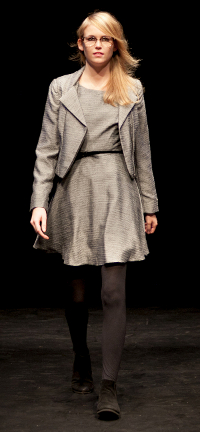
May 13, 2014, by Beth Dawson
10 Things You Should Absolutely Do in an Interview
Have you got an interview coming up, or are planning to apply for a job soon? Get prepared for this crucial part of the application process with our short guide to help you ace the interview.
1. Conduct your research
Take some time to find out about the company you’re applying to and news and developments in their industry, as demonstrating this knowledge will impress an employer.
Check out the company’s website, LinkedIn, Twitter and Facebook profiles, where they will be posting their latest news. It’s also useful to visit websites of relevant institutions for example the British Association of Social Workers has a regularly updated ‘news and media’ section.
2. Know your application
Your application form, CV and covering letter are the first impression and employer gets of you. They will expect you to build on what they have seen here and may even ask you more about certain work experience you have mentioned. Read through your application beforehand, so you can refer to examples you’ve used and identify areas you may not have mentioned, but want to draw upon when speaking to an employer.
3. Dress to impress
It’s not all about appearances, but dressing smartly for an interview will help you to make a professional impression. Although it is useful to research the culture of a workplace in regards to what you would wear while working there, at an interview you’ll want to dress in business wear. Remember, even if you’re applying to work somewhere where jeans and t-shirts are the norm, you’re the one that has to impress.
4. Get your greeting right
It takes just seven seconds to formulate a first impression, make this short time count. Enter the interview room confidently and make eye contact when you greet the interviewer. Simple things like not having an overly firm or limp handshake can help to create a positive impression. If the door to the interview room is closed, remember to knock before you enter, it’s easy to forget this when you’re nervous and know you’re expected, but it establishes how polite you are even before you open your mouth.
5. Think like the interviewer
Why has the interviewer asked you a question? What skills and characteristics are they looking for you articulate? Thinking about what an employer is looking for can help you to formulate your answers.
Examine the person specification and the job description, as these will tell you what an employer wants to see, and make notes of what you would ask if you were looking for someone with these qualities. Also, why not ask a friend to put you on the spot with mock questions?
6. Adjust your body language
93% of communication is non-verbal, so be sure that your body language isn’t undermining what you’re saying. For example, you can say how passionate you are about working somewhere, but if you’re slouching and looking around the room, your claims may not appear genuine.
Sitting up, making eye contact with every member of the panel, if you’re interviewed by more than one person, and not fidgeting or gesturing too wildly, will help you to appear engaged. If you’re aware of any habits that may be distracting, try to make a conscious effort to keep them in check.
7. Take a breather
Answering a question too quickly, or worse, cutting an employer off before they finish asking the question, might come across abrasive and you may rush into not fully answering the question.
Some questions can be worded in a way that makes them confusing, so take a few seconds to think about what the employer wants to hear and examples you could use to demonstrate your points effectively. If you don’t understand the question, there’s nothing wrong with asking them to repeat or clarify it – it’s better than trying to stumble your way through an answer!
8. Ask questions
If you go on a tour of the premises, asking questions is a great way to connect with your guide and show that you want to know more about the inner workings of the company. The person who shows you round could feedback their opinion of you to the interview panel.
Similarly, prepare some questions you want to ask at the end of an interview. Some good topics to consider are asking about professional development opportunities and chances to get involved in exciting projects, there demonstrate your eagerness to get involved and learn. Asking questions about how much time off you get might not go down so well!
9. Be positive
Don’t undersell your experience or make a project sound like a failure. Even if there was a negative outcome to an experience, be sure to emphasise what you’ve learned.
Speak confidently about your experiences and don’t be worried about repeating information that is in your CV, an interview is a great opportunity to expand upon the information in your application.
10. Be yourself
Finally, an interview helps an employer to assess your skills and experience and to see whether you would fit into their company. Give them a good idea of who you are and what you can offer, after all if you put across a false impression of yourself, when you start a job you won’t be able to keep it up!
If you want more hints and tips to help you stand out at interviews, visit our website. If you have an interview coming up, you can book an appointment with a careers adviser on My Career or keep a look out for announcements about our ‘finalist steps to success’ workshop, in which you can explore each stage of the application process.
No comments yet, fill out a comment to be the first


Leave a Reply